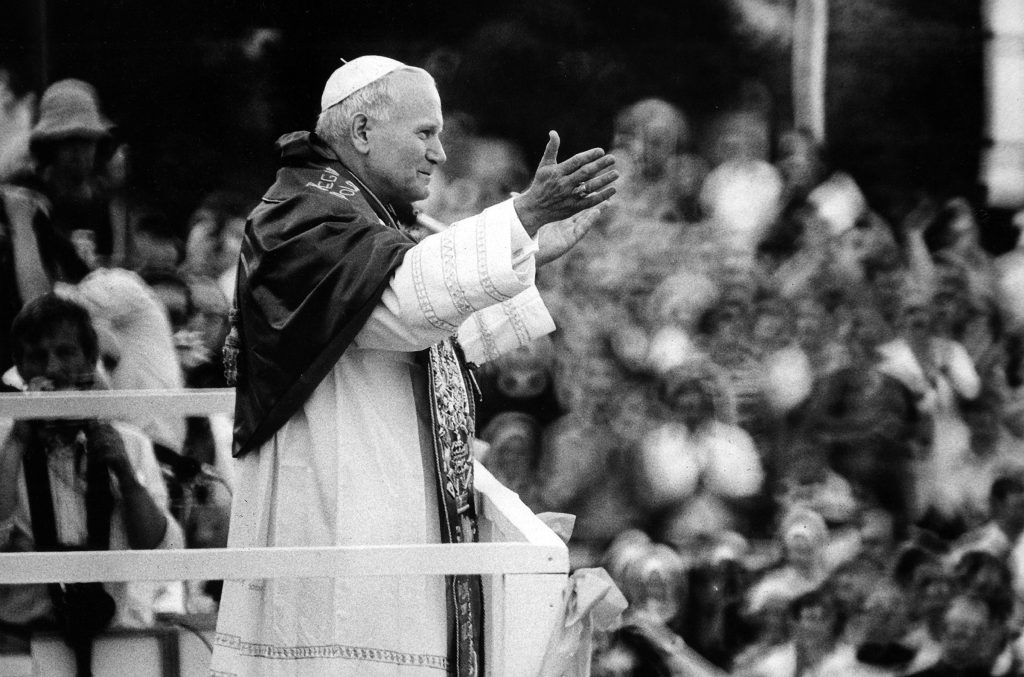To speak of love is to speak of a topic, but it is also to speak of a way of life. "The whole of man's life is vocational" and this vocation, the divine call, is precisely an invitation to have a life rooted in love.
The answer to this call takes many different forms and one of them is marriage, the sacrament that unites man and woman to become one flesh. The importance of this is not insignificant and the priest Juan de Dios Larrú, president of the association, knows a lot about it. Person and Familydedicated, as described on its website, "to social promotion, research and training on marriage and the family".
In this interview with Omnes, Juan de Dios talks about this formation initiative, about sexuality and the call of the Church "to be a great family that generates, educates and accompanies all people towards Christ".
How and why was the association Person and Family born? The name is very reminiscent of the title of St. John Paul II, "Person and Action", is there any relationship with this saint?
-The Association was born in the year 2000, coinciding with the end of the first graduating class of couples and families completing the university specialty of family pastoral care. An experience that began in Spain in 1996 as a pilot experience.
It was born from the desire of the families to remain united. Having lived an experience of communion among them, who came from different parts of Spain, and wanted to continue in contact, promoting family ministry, deepening the formation they had received, but fundamentally with the apostolic vocation to bring to others what they had experienced. The importance of a family association is very great, because the root of society is the family and the Church is called to be a great family that generates, educates and accompanies all people towards Christ.

"Person and Family" is related to. John Paul II because the university specialization in family pastoral care was born within the John Paul II Institute for Marriage and Family Studies. It is an experience inspired by the genius of John Paul II in his approach to marriage and the family. He had an experience as a young priest in his diocese of origin, in Krakow. And later, when he was elected successor of Peter, he offered to the whole Church the experience he had lived, creating the Institute in 1981 in Rome, with different sections all over the world. Here in Spain, in 1994 the Institute arrived in Valencia.
How did you come up with the idea of the experience and the diploma of specialization in family pastoral care?
-The Association was born with the vocation of forming families through an experience that was not simply a course, but had the ingredient of integrated formation with the coexistence of families, marriage and family spirituality, in the form of meetings.
The event of meeting one family with another, of seeing that they came from different ecclesial environments, different dioceses, parishes and movements, enriched them enormously. Friendships were formed that have endured over time.
Who is the Diploma of Specialization in Family Pastoral Care aimed at?
-It is addressed to everyone. Man is a family being. Evidently, it is oriented mainly to families, but a priest, a religious, a nun, a seminariana single person, they can do it too. Because they also have families. People who do not have a university degree can also take the course, although the degree they obtain does not logically have university value.
In short, it is for anyone who wants to have an experience of meeting families to better understand this family ministry and to promote it.
Why is the curriculum divided into five specific modules: philosophical, theological, pastoral, moral and psycho-pedagogical?
-The curriculum is inspired by the original methodology of St. John Paul II, developed in his catechesis on human love in the divine plan. The genius of the holy Polish pope consists in approaching the reality of marriage and the family from the circularity between divine Revelation and human experiences. This sapiential approach makes it possible to integrate theology, philosophy and human sciences in order to recognize the meaning of the human experiences that are lived in marriage and the family, and which are inscribed in the language of the body created by God and called to glory.
In recent decades, the aforementioned sciences have deepened their understanding of marriage and have come together in a unitary approach. Unity in difference is a key, to distinguish in the united is a methodological key in the knowledge of John Paul II.
Nowadays it is very difficult to find people willing to commit to another person for life and, if they do, the decision is delayed for a long time. Is this a problem and how can it be solved?
-It is true that we live in what we could call a "crisis of promise"; there is fear of commitment, fear of failure, uncertainty about the future. The historical moment we live in is marked by the primacy of emotionality. The postmodern cultural transition is still full of unknowns. This generates a lot of insecurity in people and is reflected in the crisis of promise, which is inseparable from the crisis of generativity. That is to say, people have stopped marrying and having children, and this constitutes a real challenge for society and for the Church.
The whole of human life is vocational, and the vocation to love is the guiding thread of all family ministry. Learning to love necessarily includes learning to promise, for promise is the form of love. The difficulty or impossibility to promise is causing a great change in our society. What is at stake is the happiness of people, the generative capacity and fruitfulness of a life. It is not so much a problem to be solved as a mystery in which it is necessary to know how to enter so that people can live a full, successful, great life, at the height of the vocation to holiness to which God calls us all.
For a long time it seemed that the Church was afraid to talk about sexuality, why? What has changed?
-The 20th century witnessed two sexual revolutions, that of 1917, coinciding with the Russian Revolution, and that of 1968, marked by the generational change after the Second World War. This is why today it is more necessary than ever to deepen the meaning of sexual difference, to learn to integrate affectivity and to discover that the mystery of sexuality is directed to the sincere gift of self.
Today we can see the powerful influence of ideologies that have disfigured and deconstructed the true meaning of sexuality. The Church feels the urgent need to help so many people who suffer because of all this, and to show and communicate the treasure she has received in a way that is accessible to the people of today.
How can you help engaged couples lead a relationship towards marriage? What do they need to know to know if they are with the right person?
-The first thing I would say is that today we need to generate engaged couples, because the main challenge is of a generative nature. The accompaniment of engaged couples is fundamental. The "Familiaris consortio". divided the preparation for marriage into three stages: remote, proximate and immediate, and "Amoris laetitia"He insisted on the importance of preparation, the need to create itineraries of faith that will mature people towards the sacrament, which is not only the end, but rather the beginning. For this reason, along with the accompaniment of engaged couples, it is necessary to care for young couples, teaching them how to live conjugal love.








